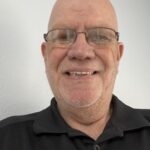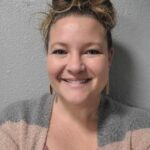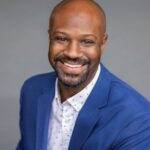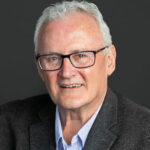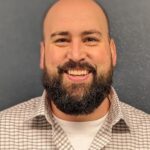By Stephen Floyd
Eight candidates are running for four seats on the Silver Falls School District (SFSD) Board this May, with a variety of perspectives and priorities for each contender.
Our Town asked each candidate about why they are running and the impact they hope to have if elected. Below are their answers in full and unedited. The questions featured include:
– Why did you decide to run for office?
– What specific goals do you have as a school board member?
– What issues do you believe voters should be particularly aware of this election?
A forum to address candidates directly is scheduled for 6:30 p.m. Sunday, April 23, at the Silverton Grange Hall (201 Division St NE). Ballots are scheduled to arrive May 2 and should be returned no later than 8 p.m. May 16.
Candidates are featured in the order they will appear on the Marion County Voters’ Pamphlet.
Who is running?
Zone 1
Philip Wiesner, a farmer and retired teacher, with 36 years of experience in the Silverton and Mt. Angel areas. He has been a member of the Mt. Angel Fire District Board of Directors for more than 20 years, and previously ran for a seat on the SFSD Board in 2015.
Jo Tucker, a former elementary-level special education assistant for SFSD and currently an intake representative for the Oregon Department of Education. This would be her first role in elected office.
Zone 3
Derrick Foxworth Jr., a lieutenant with the Portland Police Bureau, a parent of local students and a volunteer coach for the Silver Falls Soccer Club. This would be his first role in elected office.
Dixon Bledsoe, a real estate broker and former co-owner of BST Realty, in Silverton. He also has a background in medical consulting. Bledsoe has formerly served on the Silverton City Council, Silverton Planning Commission and Willamette Education Service District Board.
Zone 6
Eliza Torlyn, a local artist and owner of Jedi Glassworks and Stickum Prints. She raised her children in the district and has served on the SFSD Bond Advisory Committee, Superintendent Listening Session Workgroup, Long Range Facility Planning Committee, and served as Butte Creek PTT President. This would be her first time in elected public office.
Joshua Ort, a chiropractor and owner of Ort Chiropractic Clinic, in Silverton. He has a history of helping the district provide athletics physicals for student athletes. This would be Ort’s first role in elected office.
Zone 7
Jesse Smith, a full time parent with a background in web development, marketing consultation and music education. He has not held prior elected office, and was the Democratic candidate for Oregon Representative District 18 during the 2022 General Election, which went to incumbent Rep. Rick Lewis (R-Silverton).
Tom Buchholz, a farmer and owner of Buchholz-Schmitz Farms, in Scotts Mills, and Evergreen Christmas Tree Equipment, in Woodburn. He has been a board member since being elected in 2011.
Why did you decide to run for office?
Philip Wiesner: “I’ve spent 36 years serving in education and 45 years in coaching, putting a high value on education of our young people and their well being. I want to serve my community in a way where my training, experience, passion, and background can be beneficial. I have a lot of years under my belt serving as a board director for the fire district where I live and being part of making budget decisions and policy decisions as a director. I’m a land owner and worked and lived in farming community for years yet also grew up in the town of Silverton where my parents owned a business. I attended K-12 in my home town Silverton schools. My first 11 years of teaching was at Bethany Elementary District before unification. My credentials and background are quite varied yet all have a part of making up how I see things in our district and would approach issues as they arise. The board position in my zone of the school district was open, I felt being a member of the board was a productive way I could give back and serve my community.”
Jo Tucker: “Running for a seat on the SFSD Board was not a decision I came to lightly. I had worked for the district for the past five school years and had a first had experience and exposure to some of the biggest hurdles, concerns, and weak points for our schools, staff, and students. I also got to experience and see the strengths. I am also a former student of SFSD, and am a current SFSD parent. My heart has solidly been drawn to our community, and especially our students for many years. Leaving my position as an employee of SFSD was not an easy thing to do. I knew I wanted to continue to be a part of our students growth and success, it would just have to be in a different capacity. It was brought to my attention that the sear for my zone (Zone 1) was up for election this year. So I did a deep dive into what being a part of a school board means and looks like. Our district is in an interesting time right now, with the current SFEA impass, the upcoming bond purposal, and upcoming classified barging, along with recovering/returning from COVID and all of the changes that has brought to our staff, students, and school environments. I feel that we have some potentially trying times ahead of us and I believe the prospective that I bring to the table could be beneficial. I want what is best for the students of our community.”
Derrick Foxworth Jr.: “My family and I have been a part of the Silver Falls School district for the last seven years and will have children in the district for the next twelve. Many of our friends and family have children in the district as well. I am running for them and for you! I am committed to the academic success of all children that call Silver Falls home. As a father of three there is no greater investment of time, energy, and resources than into the character development and education of our children.”
Dixon Bledsoe: “School boards are no different than the general population – there are many views, many hot buttons, and an awful lot of challenges. I believe our country is better than single issue politics and the uber-partisan mode we are in now. I believe good people of all political persuasions can meet, dissect issues, seek compromises when possible, and move forward together for the benefit of students’ educational learning and growth, and within a budget. My belief is simply – Kids first. Budgets close behind. Politics – dead last.”
Eliza Torlyn: “I have decided to run for office to continue to help our school district build a sustainable future for all of our students. I’ve been a deeply engaged community member for the past seven years. I think it’s time I use my historical perspective to inform future choices.”
Joshua Ort: “Great question. I’ve been considering running for the school board for some time now, especially in light of the increased challenges our schools face due to the political climate, post-COVID-19 recovery, and public education financial constraints. At the end of the day, the well-being of our children is paramount, and I believe that my commitment to service, volunteering, and helping others makes me well-suited for this role.
Over the years, I have been actively involved in the district in various capacities, including working on facility needs and the school bond for the past three years. This experience has not only prepared me for the responsibilities of serving on the school board but also deepened my desire to take on a leadership role in our community. I am eager to use my skills and experiences to make a positive impact on our schools and the lives of our students.
In summary, the kids are worth it.”
Jesse Smith: “I decided to run for School Board because I have two kids attending school in the Silver Falls School District, and I want to see the district provide the best possible education for them and for all the students. Last year I ran for statewide office, largely for the same reason: the public schools need better funding, and I believe more of that funding should come from the State level. Now I’m hoping to help the district make the most of the resources we have available.”
Tom Buchholz: “I’ve enjoyed it! I truly love our unique geographically large school district and its many school communities. Our schools are central to all our communities.”
What specific goals do you have as a school board member?
Philip Wiesner: “We have a wonderful collection of schools in our district. Overall the district has many great employees. Quality young adults have been the product of our schools and community. Taxpayers have stepped up and funded these schools. We do not want to slip backwards and want to strive do even do better as a district. There is evidence of a slippage in communication and ultimately trust at many levels in our district. I want to be part of working towards getting as many of us as possible going in the same direction, for the benefit of what we’re all wanting a quality education for our young people. I want to be a member of a board that questions, listens, guides, and is a positive influence on our schools for the benefit our community. We need to throw around ideas, be innovative with approaches, glean the best from all of us, and get the work done.”
Jo Tucker: “I have a lot of learning to do. This environment is new to me. I don’t come in with a political background or previous board experience. I come in with experience of being a parent, community member, previous school employee, and advocate for our kids. My goals would be to become more educated about the current state of our district, the needs, the potholes, and what resources we have available to start fixing them. What resources are we providing our SpEd students, and is that being done in an equitable manner. Not all students are gen ed students first. I believe that we need to make our teaching staff a priority, they are the people that educate and support our students every day. We should support them, and that does not necessarily mean in a monetary way, but it might be. We need to look at classroom sizes and the effect that has on students and staff alike. The return to in person education brought some significant changes. How do we support our students and our staff after that? I am going to a listening session for the proposed bond this week, but I am curious what a preventative maintenance plan looks like should the bond pass? I was a SHS student at both Pine and Schlador, I remember what it was like then. How are we going to ensure the buildings are being maintained if this passes so we don’t find ourselves in this position again in the future?”
Derrick Foxworth Jr.: “I think it is paramount that we take a renewed focus on ensuring our young people are meeting grade level standards. Silver Falls consistently ranks as one of the best districts in the state. However, the state consistently ranks in the bottom half of the country for K-12 education. I would like to see the district collaborating with top performing districts around the country to see what can be gleaned and applied here locally to improve our students’ academic success.
With four board positions up for election it will be important for board members to come together as a team and remember that their number one job is to serve the students.
I would like to see increased parent participation and involvement. I think there are some strategies that can be implemented to increase parent and family participation.
Silver Falls has exceptional teachers and educators. We need to continue to work hard to retain and hire exceptional teachers.
Many of our facilities need significant repairs and upgrades. Determining the best way to pay for these and being fiscally responsible is a critical need and will take community wide input to determine the right path forward.
School safety. School should be a place where children can feel safe physically and emotionally. I think an evaluation of each school’s overall safety plan is important and an area where I have significant experience in.”
Dixon Bledsoe: “My goals are to help bring the administration, staff, and Board together after a particularly grueling bargaining period and in advance of a particularly grueling bond measure discussion. I want to help the District, Teachers, and Staff do what is best for students, but within alotted budgets and hopefully some other funding sources. I will NOT take positions until I hear the facts and the emotions, from both sides, and do not answer complex questions with overly simplistic answers. My hope is to be an advocate for a responsible and realistic bond passing, since school districts cannot make expensive capital improvement projects from general fund money. I have a goal in helping the rural and urban communities come together to achieve one bridging goal – doing what is best for our kids, who will all be together as Foxes in the 9th grade, within financial parameters granted by the State and Taxpayers. I also hope to foster great relationships with those families who trust the schools with helping their children succeeed. Every child. Parental involvement is crucial. I am also a firm believer in helping children grow socially, educationally, and emotionally so that none get left behind, but I also believe we can do a better job helping kids get ahead. We have to be more active and focused in our TAG programs. And my key goal? Asking the right questions of the School District Professionals, not to impede their ability to do their jobs but to help ensure that kids benefit, budgets are respected, and success is available for every child.”
Eliza Torlyn: “As a board member, my goals will be to help keep the focus on the success of all of our students. No matter their background or skill level, I hope to see students graduate with a plan to tackle their adult lives with enthusiasm and hope. Also, I’d like to get bullying out of our community. I’d like to see more of our youngest students meeting grade level targets for reading, writing and math. I will encourage creative learning opportunities, to help students feel engaged in school and develop their identity for their post k-12 experience. Finally, I hope to support understanding between the three most influencial groups in our student’s lives; families, teachers, and the district administration.”
Joshua Ort: “a) Restoring the relationship between the district office and the teachers. b) Enhancing the social, emotional, and spiritual well-being of our children. c) Ensuring the physical safety of our children. d) Spread love. Model decency and kindness, even in disagreement.”
Jesse Smith: “As Bruce Willis said in one of the Die Hard movies, ‘It’s always about the money.’ When budgets are tight, sometimes we have to use creative thinking to achieve our goals. My primary goal as a School Board member is to help the district deliver the best education possible with the resources it has available. Part of that strategy involves looking for ‘bright spots.’ What’s already working well, and how can we do more of that, and how can we apply those lessons more broadly?”
Tom Buchholz: “Pass a school construction bond so our buildings are well taken care of and continue to serve our students and their communities for many more years. Focus in K-3 reading.”
How would you describe the district’s relationship with the teacher’s union, and what would you do to strengthen that relationship?
Philip Wiesner: “Obviously with negotiations going on for as long as they have and there presently being an impasse, the relationship does not give the appearance of being good. I would look to get at the bottom of what can we do to fix the broken parts of this relationship. From what we as the general public can see there is definitely a feeling of mistrust between the parties. I’ll be first to say let’s look forward and not live in the past but at the same time, let’s at least take a hard look at this relationship and figure out why it has gotten so contentious. Once we identify how we got here, let’s focus on how can we fix it. In general negotiations get viewed as a money argument, this has signs of being much more then that and something money can’t solve long term.”
Jo Tucker: “Right now I believe the relationship between the district and SFEA is being tried and is wearing thin. I cannot speak for either side, and I will not say that I do. I have been to some meetings, and I have observed others online after the fact. I have followed posts and/or media releases from both sides. I personally feel that there have been comments made about the integrity and intentions of the teaching staff that were uncalled for and out of line. To state that someone in their position has “perverse intentions” and not allow an opportunity for anyone from that side to speak on their own behalf, but to sit in silence and take it. I think that shows a lot of grace and strength. Do I think the relationship is so strained that it cannot be repaired? No, I do not. I think people need to be truly heard and respected. They need to feel and actually be supported. I have faith that things can and will get better. It has to, for our our district administration, building level staff, and for our students.”
Derrick Foxworth Jr.: “First, I want to start by thanking our teachers and educators for the monumental responsibility that we as a collective society have asked them to do. So teachers, thank you! With that being said, I think right now there is some tension between the teacher’s union and the district around contract negotiations. I am hopeful that a resolution will be found that is agreeable to both parties.
If elected I would like to see the creation of a Teacher Advisor Committee or TAC for short. The TAC would be made up of teacher/educator representatives from each school. This group would meet regularly to discuss various issues and solutions affecting the district. A small group of 2-3 members of the TAC would present to the School Board. I find that those closest to the work often have great ideas and solutions. I think the creation of such a group would provide teachers with a greater and more consistent voice at the district level. The TAC would be separate from the teacher’s union but another avenue to increase participation and collaboration between teachers and the district with the common goal of how best to support the education of our kids.”
Dixon Bledsoe: “I think this relationship is in dire need of help. Bargaining has been brutal. Trust is in short supply. Strikes serve NO ONE well. Kids lose, parents lose, we all lose. As we come out of Covid, which was devastating in so many ways, it does make intuitive and logical sense to compromise on the last two remaining areas of dispute (class size and compensation) so that we can keep kids in school learning. I can help as I have friends on both sides of the aisle. Listening more, talking less, being candid, and being realistic with what is and isn’t achievable within fiscal parameters and financial viability, I think I can help. Offering creative and realistic solutions that are carefully thought through is a strength of mine.”
Eliza Torlyn: “The teacher’s have been working without a contract this year. I would be very disappointed to see the teachers strike. I hope that the district and union bargaining teams can find a reasonable agreement before that happens. We have hundreds of talented teachers and we need to have competitive contracts to retain them and attract more like them. We have a small and hard working district administrative team that has budgetary limitations to consider while creating this contract.
To help strengthen the relationship between “the district” and “the teachers,” I would encourage them to listen to each other with a compassionate ear, to express gratitude for the work each team is doing, and to actively review together what does and doesn’t work with their mutual expectations.”
Joshua Ort: “In my view, the relationship between the district office and the teacher’s union is currently strained and under stress due to factors such as intense labor negotiations, two new K-5 reconfigurations, increased classroom behavior issues post-COVID-19, and the introduction of a Guaranteed and Viable Curriculum.
To strengthen this relationship, I believe that fostering an attitude of openness and a willingness to listen and learn from both parties is essential for reaching resolutions or achieving mutual understanding. This approach can help build a healthier relationship between the district and the teacher’s union.
Furthermore, I would encourage parents to become more actively involved both at home and at school, partnering with educators to support their children’s education in all aspects of life and academia. Increased parent involvement can help alleviate some of the mounting expectations placed on our teachers, which are becoming increasingly unmanageable and approaching a breaking point.”
Jesse Smith: “I would describe the school district’s relationship with the teachers’ union as “contentious,” and I think that’s really unfortunate. We are all in this together, we’re part of a team, and we share the goal of giving all the students a great education. On the one hand, budgets are tight, but on the other hand, we have to offer competitive wages and benefits in order to attract and retain top talent. I think the teachers were really disappointed that the district wasn’t willing to budge on any of its positions in the most recent offer in these lengthy contract negotiations. And you know, the thing about politics on any level is, sometimes in order to get most of what you want, you have to also give the other party some of what they want. We have to work together, we have to respect one another, and we have to listen in good faith. In the current situation, we may not have the money to agree to everything the teachers asked for, but there must be a way to find a solution, a reasonable compromise that works for everybody. And unfortunately the current members of the School Board haven’t been able to do that. So I hope our community will agree that it’s time for a change in leadership.”
Tom Buchholz: “It is more difficult than it should be. The district, teachers and parents all want the same things; good pay, appropriate class sizes, resources for kids that need a little extra help and state laws and regulations to make the job of teaching easier. We all want these things so, ‘why are we fighting’? I would like to see a joint statement of shared values that the teachers and the district agree to that both parties can send to lawmakers in Salem and we can refer back to when tensions arise. The vast majority of resources and rules are directed from Salem and the most effective change for our kids will occur from there.”
What issues do you believe voters should be particularly aware of this election?
Philip Wiesner: “Whether real or perceived, our teachers don’t think they have a meaningful voice in the district. From a private citizen point of view, based on meetings witnessed, stories read, and from conversations with tax payers, parents, administrators, teachers, & board members there are programs being implemented or sought after without first getting buy in at the grassroots level. I applaud that the district has gone to all the schools gathering input concerning the bond and has something in the bond for all schools. People will have a pretty good idea, after they take advantage of the information out there, what they are voting on when it comes to a bond vote and will decide if they can support it. Maybe a similar type of approach would be healthy when pursuing and implementing things like curriculum and staff development programs. There is a wealth of quality educators in the district, let’s get their input and thoughts and hopefully support before we spend hundreds of thousands maybe even millions of tax dollars or grant money on programs for them to take part in or implement. Getting all participants rowing in the same direction is what will get our ship to port with the fewest mishaps. We don’t need nor will we ever get unanimity on what money needs to be spent where, on what, or how but to have a healthy district climate; we do need all to have a voice and be valued. That ship I spoke of is carrying OUR children. The crew are all of us tax payers, board members, administrators, classified staff, certified staff, and parents. Let’s deliver those children the safest, most caring, and best way we can while still keeping an eye on a fixed amount of money to work with in our budget. Silver Falls School District is a good district to raise a child but let’s not be satisfied and complacent. A lot of good people have done a lot of good things to get it where it is. Let’s be sure we’re not slipping backwards. We need to continue towards excellence and we can only move forward by effective communication and valuing all stakeholders involved in our kids’ education.”
Jo Tucker: “This is tricky. People connect to different things because of the impact it may have on them individually. Some families may not be concerned with Special Education resources, or sensory space, because their student(s) don’t directly benefit from it. Some families are exempt from or have accommodations for standardized testing so benchmarks carry little weight. Everyone with a student who attends in person classes goes to school in one of our buildings, so the bond and preventative maintenance planning essentially affects everyone. While in those buildings, your student(s) are in a classroom with other kids, how many? Is it overcrowded? Does the teacher have enough time to prep adequately and have the support staff available to provide the best learning experience and environment they can? These are things that apply across the board.”
Derrick Foxworth Jr.: “I think the top three issues this election is focusing on education, educators, and facilities. Education, educators, and facilities all support the overall goal of imparting knowledge to our kids. As I have stated I think we need to take a renewed look and evaluation on meeting grade level standards to improve academic success. A key to improving academic success is investing in our teachers and their professional development. Lastly, we need to have facilities that support the other two.
Thank you for your help. If there was anything you wanted to mention that was not covered in the questions above, please include those comments with your answers. I will be sure to follow up with any additional questions promptly.
The last thing I would like the voters to think about as you are looking at which candidates to elect, I want you to keep in mind that you are building a team. You should evaluate each of us candidates on our individual merits while looking for complementary skills sets that will create a well-rounded team.”
Dixon Bledsoe: “Somewhat easy to answer. Mending bridges between administrators and staff (licnesed and classified), regaining trust among all parties, and getting a well-thought out bond passed. The price will only go up and the problems will not go away until they are fixed. Voters cannot assume the District just deferred everything and now are asking for a bail-out. Schools all across America face the same issues – Not particularly great support from the State, limited budgets, voters reluctant to pass bonds for capital improvements because it impacts taxes, and aging buildings growing older and more tired every day. And we are not protected from all the culturally divisive things Boards and schools and Americans arm-wrestle with every day. I will, as my promise, treat each issue that comes before the board on a case by case basis using critical thinking skills to analyze each, listening to every viewpoint, and offering solutions that will 1) Solve the problem and, 2) Last.”
Eliza Torlyn: “These midterm elections often don’t get as much community engagement as the larger general elections. However, many of the elected positions that most closely affect the life of our little community are voted on during these elections. School board elections are non partisan. Our school board directors should reflect the broad community that our schools support.”
Joshua Ort: “Tough question. One issue I believe voters should be particularly aware of this election is mental health, with a specific focus on our children. There has been a significant increase in the number of kids experiencing depression, anxiety, and related medical conditions as a result of the stresses of school and everyday life. Our children are finding it increasingly difficult to cope with these pressures. I encourage voters to talk to teachers and counselors in order to gain a deeper understanding of the situation; they may be astonished or even shocked by what they hear.”
Jesse Smith: “At this moment in history, Americans are becoming aware of the need to align our policies with our core values, the values that we share whichever side we’re on.
We believe in equality, and yet we recognize that not everyone is exactly the same: so it’s our job as a community to do everything in our power to create equality of opportunity; and sometimes that means some kids need extra attention, but it should not mean that we sacrifice our educational standards. We’ve got to continue to strive for excellence and set the expectation that everyone will do their best.
One of our most cherished core values is freedom. That includes both freedom of speech, and freedom of inquiry. And in our current political environment, those freedoms are under attack from both sides. And I think it’s up to us as members of the community to set aside our alignments once in a while and focus on the values that really matter to us. If we’re going to live with integrity, then we have to offer the same freedoms to others that we reserve for ourselves: even if that means some people may read or express ideas that we find offensive. And that’s hard to do sometimes. It requires a certain level of maturity. But I believe that ultimately most of us want what’s best for the community, even when we disagree about the details. And I believe that when it matters most, we’ll eventually be able to come together in defense of freedom.”
Tom Buchholz: “The anxiety in our kids is troubling. They are suffering from broken families and too much screen time. Read books with little kids so they can teach themselves for the rest of their lives. We need resilient kids. Play cards and board games with little ones so they learn the happiness of winning, the disappointment of losing and the confidence of getting better after learning from mistakes. Your District is focusing on K-3 reading going forward and I will be continuing to make sure that focus stays.”
